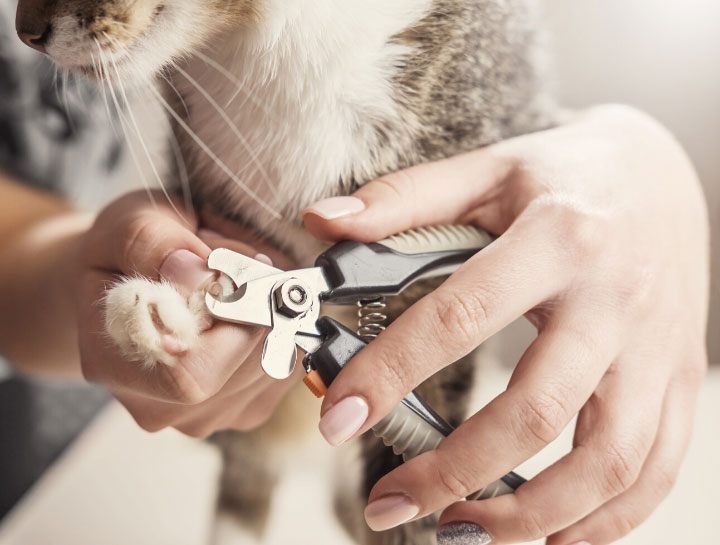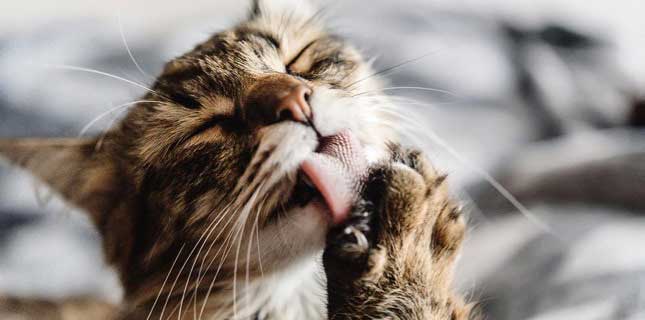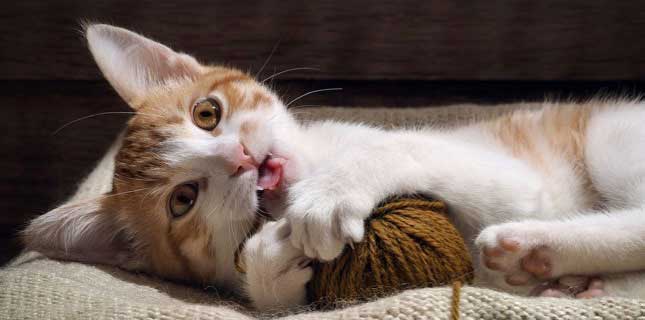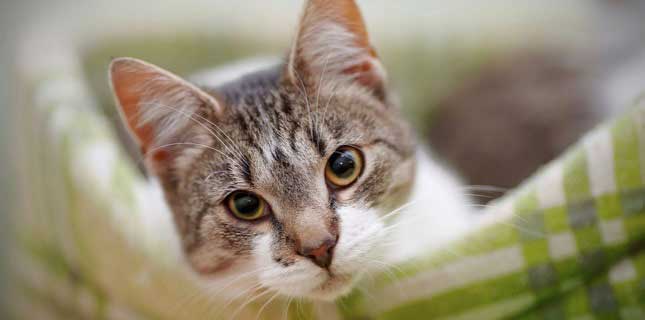Considering Declawing a Cat? Five Questions Answered!

Our Castle Rock vets have answered 5 questions we’re commonly asked about declawing cats.
We want to help you make a good decision for your cat and family.
#1: Should I declaw my cat?
If you have an indoor/outdoor cat, our veterinarians don’t recommend declawing your cat.
Your cat’s claws offer protection outside.
Related article: How to keep your cat safe outdoors
If you have an indoor cat, you can train your cat to scratch on a training post.
Training saves you the cost of declawing a cat. Plus, it helps your cat avoid potential pain and trauma.
The best time to train is when your cat is a kitten.
As soon as you get a new kitten, talk to our veterinarians about ways to avoid declawing.
We’re happy to discuss ways to redirect your cat’s energy.
Related article: How to pet-proof your house for a new dog or cat

We understand there are times when your family may need to declaw your cat.
We have families come to us because they:
- Have not been able to train their cat to scratch on a post
- Have a family member who has a compromised immune system
This may be due to Chemotherapy, a disease, medications to suppress the immune system or the person was just born that way.
The family member can’t afford to get scratched.
#2: What age should I declaw my cat?
Between 3 and 6 months of age is ideal.
Typically, our veterinarians suggest you declaw your cat at spay or neuter time.
For many cats, that’s around 5 or 6 months of age. If your kitten is already spayed or neutered, we may perform the declaw surgery earlier.
The recovery time is much quicker when cats are young. There also are fewer potential complications.
We do not recommend declawing older cats.

#3: I’m looking for vets that declaw cats. What questions should I be asking?
Be sure to ask what’s included in the procedure. Always confirm that:
- A nerve block will be used in each of your cat’s paws that will be declawed.
- Pain medication will be prescribed (and used) for 7 days after the declaw surgery.
These are “must haves” regardless of where you go for the procedure.
If you come to Cherished Companions, we’ll make your cat as comfortable as possible.
#4: What’s the recovery from a cat declaw surgery?
Typically, we’ll keep your cat for 2 days.
We want to make sure the bandages stay on, and your cat has a confined and quiet space to begin healing.
When your cat comes home, give your kitty time to rest and heal.
We suggest you use paper litter for a least one week.
Regular kitty litter can get into the area that’s healing and cause infections.
Cats are very good at hiding discomfort. Be sure to give your cat pain medication, even if he or she is acting normal.

#5: Are there side effects from declawing cats?
Sometimes.
Be sure to discuss all the potential side effects with a veterinarian upfront!
Some cats that are big clawers can turn into biters.
There’s a risk of neuropathy — numbness in your cat’s paws. You may notice your cat limping.
And in older cats — which we don’t recommend declawing — there is a greater chance of infection and the need for ongoing pain medications.
